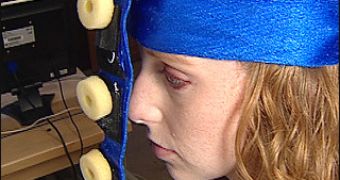A new device that relies on the brain's first impulsive reactions when subjected to images it would recognize may render the DNA or fingerprint-based techniques obsolete in the near future.
A neuroscientist from Seattle, Dr. Larry Farwell, chairman of Brain Fingerprinting Labs, helped science become more involved in justice being done by developing a technology relying on the basic fact that the brain is not designed to lie. At first glance, it may seem to be similar to the polygraph in goals, and it is, too, but, unlike its predecessor, which relied on a technique (the emotional responses of the body) that could be meddled with, this one is based on the fast reactions of the brain when confronted with images and words from a crime, which only the criminal would recognize. Also, as opposed to polygraphs, the use of these devices is allowed in court.
"If the person was there, they get 'ah ha!' response in the brain waves," explains Dr. Farwell. "The brain says 'Ah ha!' This is an involuntary response that happens very quickly; it's not something you can control." He calls its invention, the modern lie detector, "brain fingerprinting." It consists of a weird shaped headband sending information to a computer which displays specific messages based on the received data. Dr. Farwell's efforts were backed by FBI, CIA and other American law enforcement-related agencies and among its successful results, there are the 23-year late release of an innocent man from Iowa and the eventual confession of a Missouri serial killer.
In spite of its proof of usefulness, some justice-related departments are still reluctant towards its large-scale acceptance. However, Dr. Farwell is very optimistic about it: "It took some time, it always takes time. It took time for fingerprints, for DNA and now for brain fingerprinting." He says that its foolproof state is going to finally convince the skeptical. "I can't beat it, and I invented it," said the neuroscientist. As a final piece of evidence, he offered a $100.000 prize to anyone who could cheat his system, but nobody has taken his money up to now.

 14 DAY TRIAL //
14 DAY TRIAL //